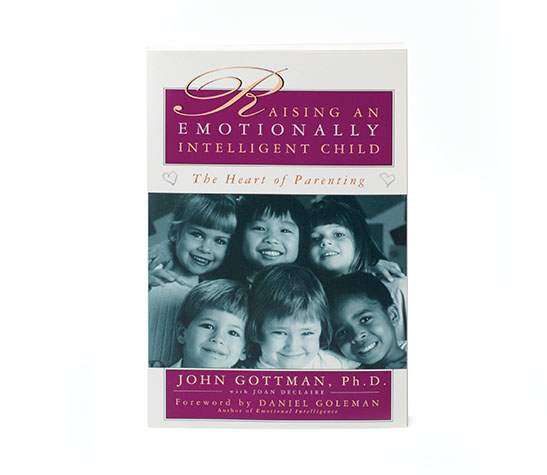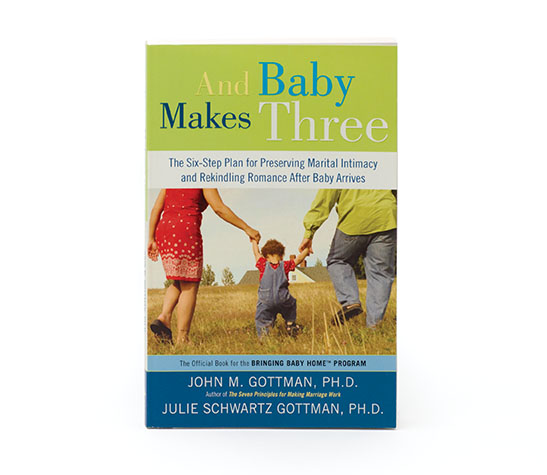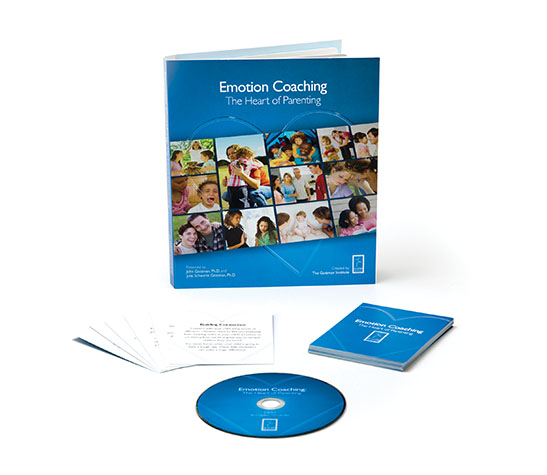You know the times in life when things just don’t feel good? When you see one of those uplifting t-shirts that says, “Life is Good,” and you think, “Not mine, today is hard and I don’t like it.”
The Bringing Baby Home Workshop helps parents to prepare for those days. Like it or not, life as a parent is not always baby snuggles and Instagram moments. As a facilitator of this evidence-based workshop, I have the privilege of witnessing couples see each other in a new way, a way that is more clear and authentic than before. When that happens, couples intentionally take in more of that beautiful view, and they savor it.
I want to share some relationship enhancing strategies that parents learn in the Bringing Baby Home Workshop. These ideas are not unique to parents; all relationships thrive with a solid foundation and continued investment.
Imagine a couple, and each partner sits on opposite sides of a pane of glass—a window. How clean or dirty this window is will represent the health of the relationship. When a relationship begins, the glass is clean and clear, and couples put in endless amounts of energy to keep the glass nice and shiny. That’s the honeymoon period, the freefall of new love!
As the relationship grows over time, stress and responsibilities build up like residue, and a couple may still enjoy the view but not in the same way as before. It’s not as shiny or clean, but things are still okay. But once a child is born, keeping that window clean becomes, by default, the lowest priority, and it just gets dirtier from there.
When I facilitate a workshop, I teach couples how to clean their windows to see each other clearly once again. There are no fancy shortcut tools; couples must do it the old fashion way. My grandmother taught me to clean windows with a homemade cleaner, newspapers, elbow grease, and determination because you will have to keep scrubbing that same stubborn spot a few times before it comes clean. And every relationship has a few stubborn spots, too.
The Bringing Baby Home program helps couples implement or refresh concepts that are research-based, easy to accomplish, and, if upheld by each partner, will enhance life for everyone in the family. Here are 4 ways to keep cleaning the window in your relationship easy and pain-free.
1. Clean your window a little at a time
“Having a newborn in the house shifted all of our priorities around and it felt like we got lost in the shuffle. I think the workshop helped us to remember to put ourselves back in the center.” – New mom, attended Bringing Baby Home with their baby, Spring of 2018
Once you have a child, you might not be able to keep your relationship tidy like you did before. Date nights may be impossible for years. Netflix time becomes laundry time. Feeding and diaper-changing supersede everything else. But that does not mean you have to assume the worst; you’re just in a difficult phase that all new parents enter.
One way to keep that window clean, bit-by-bit, is to try out the “Small Things Often” motto with your parenting partner. This means taking small moments out of your day to do extra nice things or be extra nice to your partner. So, if your partner loves a clean kitchen, you take an extra minute to organize and wipe down the counter, or you go out of your way to thank them and let them know how much you appreciate what they do for you and the new baby.
It might mean that you sit, without your phone, and watch the new episode of their favorite TV show together, or send a loving text message in the middle of the day, or tell them one thing that you really love about them before bed, or look at them and smile, and wait, hold the gaze for a few seconds, and maybe even toss out a compliment about how wonderful they look.
Yes, I just encouraged you to flirt! Even parenting couples can, and should, flirt!
All of these little things are like daily maintenance—just keeping that window clean enough for everyday use. That maintenance is key; it is much harder to manage a problem when it has been neglected.
2. Pay attention and see grime as an opportunity
We all have needs. We all want our needs met—yesterday! Yet many people are not very good at expressing needs in a responsible or effective way. It is common to:
- hold your needs in and then let them out all at once;
- never express them;
- or express them in a prickly way that offends the person you love.
After a new parent has a child, the type of support they will need will change drastically! Finding a way to look for and express needs in a relationship is key to relationship clarity. Making an extra effort to pay attention to your own needs and express them gently will help you and your partner avoid a fight. And staying grounded when your partner expresses a need (even if they are harsh) will help you act in a way that is supportive.
Keep in mind that shaming someone for having needs never ends well. Try actions that will be helpful such as offering extra help, giving a hug, making time for romance or sex, or taking over caring for the baby so your partner can take a nap and shower!
All of these small instances of day-to-day life are great opportunities to connect and clean that window together. Be kind, and remember that you and your partner cannot read each other’s minds. Talking openly and regularly about your needs is the fastest way to ensure that you are each getting your needs met.
3. Look at the grime before you clean
Emotions are messy! Look at them. All of them, splattered on that window! The emotions that feel good, even great, and the ones that feel uncomfortable or even unbearable. Emotions, especially for children, are very difficult to label, categorize, understand, and manage—and sometimes for adults, too.
When you’re aiming to clean that window, well, you need to understand what you’re cleaning first, which means that you both need to understand each other’s perspective and express empathy. Once you figure out what emotions are in play, then you can determine how best to clean up that window.
For some new parents, the Bringing Baby Home Workshop is the first place they have ever heard about Emotion Coaching, our research-based program for positive and supportive parenting, and how it is impactful in supporting themselves, their partners, and their children.
The research is clear that parenting, and life overall, is far more complex than just living a life that is happy and stable. Our emotions pull us into experiences that are beautiful, frightening, elating, and disappointing or angering. We need to know how to express those emotions—and so do our kids. Joy and happiness are great, and essential to a satisfying life, but not at the expense of stifling the expression of other emotions.
For children and families to fully thrive, all emotions—even the ones you perceive as negative—need to be valued, expressed, understood, and validated. Sometimes this means allowing yourself to be vulnerable or, at different times, staying grounded while someone you love steps into a vulnerable space.
When you are okay with being vulnerable and asking your partner to help you, it is also a great opportunity to connect as it invites your partner in—even sexually! A father of young children in my workshop once connected this idea with the most accurate slogan: “Vulnerability is the new Viagra!”
4. Two people must clean in unity
“My husband and I are in such a good place right now, and we have been using the tools from the workshop regularly. The other night we had the best ‘stress relieving conversation.’ We both felt so much lighter and closer to one another afterwards. We don’t have any solutions yet, but being able to effectively communicate and know that the other person is in our corner making such a difference.” – Note from a mother, 2017
That’s an excellent testimonial that indicates how important it is to work together in supporting each other emotionally, which leads to closeness and mutual support. But you might catch yourself slipping into one of these patterns when a problem arises:
- “suck it up” and deal with it;
- try to change your partner (because, to you, the problem is their fault);
- commit to a quick fix that ignores emotions and brushes the root problem under the rug.
These behaviors that will lead to that window between you becoming so dirty you can’t even see each other! You may even start to put off making the effort to clean since the mess itself seems insurmountable.
There is a much better way to approach stress and problems, and that next step is hard: it only works if both partners are willing to put in the effort.
It starts with listening and understanding. This means you need to give up being right or believing that you have more common sense than your partner. You need to accept their influence and work as a team in unity and solidarity.
You need to look for how your partner might be right, why they might feel the way that they do, and communicate through words or actions that you still love and like them.
That’s it. No need to change them or fix the problem. Just listening and providing your partner with the peace of being understood and supported is enough. Problems cannot be solved and compromise cannot be achieved unless you are intentional about listening to really listen, and working together to understand and validate each other’s perspectives.
With the passing of time, couples’ windows will always accumulate gunk and grime. Sometimes the window will get cleaned regularly; other times, when life gets busy and overwhelming, the window will get messy. Attending the Bringing Baby Home workshop creates shared experience in feeling how wonderful it is to see each other clearly, to find great joy in that view, that staying connected is doable, bit by bit, and that their happiness is worth the effort.
And according to John Gottman, the greatest gift you can give a child is a wonderful relationship between you and your partner. I think that’s worth the effort, too.
If you want to build a deeply meaningful relationship full of trust and intimacy, then subscribe below to receive our blog posts directly to your inbox:










